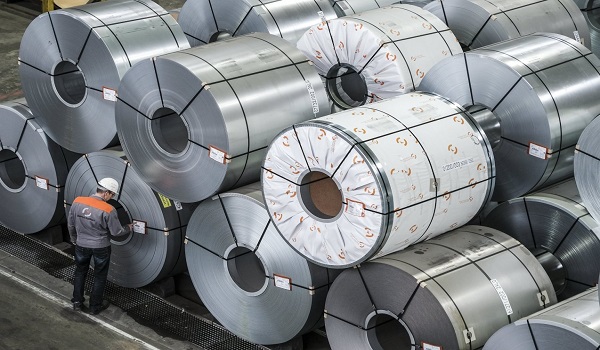Donald Trump’s decision to double tariffs on imported steel and aluminum to 50% could significantly increase food prices across the United States. The Can Manufacturers Institute (CMI) and the Aluminum Association said the move threatens to disrupt the food packaging supply chain and burden consumers with higher grocery bills.
The new tariffs, announced during Trump’s visit to a Pittsburgh steel plant to support the U.S. steel sector and Nippon Steel’s pending acquisition of U.S. Steel, are aimed at protecting domestic manufacturers. However, industry experts caution that the ripple effects could be far-reaching.
“This decision risks unintended consequences for millions of American families,” said the Can Manufacturers Institute, pointing out that higher costs on raw materials like tin mill steel and aluminum will inevitably be passed down to consumers in the form of pricier canned goods.
The sector had already expressed concerns earlier this year following the initial 25% tariff hike. Companies such as Ball and Crown warned that escalating duties were straining operations and forcing them to raise product prices. The impact extends beyond food cans, affecting closures, foils, and industrial metal containers.
The Aluminum Association, while supportive of efforts to bolster domestic aluminum production, cautioned that tariffs alone will not achieve that goal. “Aluminum and steel are different,” said Matt Meenan, Vice President of External Affairs at the association. “The U.S. needs low-cost energy and broader policy reforms to expand aluminum output. Targeted tariffs should be reserved for market disruptors like China, not reliable trade partners such as Canada.”
Both associations called on the administration to provide exemptions for allies and to consider the real impact on domestic food production. CMI President Robert Budway emphasized that U.S. food security could be undermined if American can makers are priced out of the market by foreign canned food producers. “This policy shift benefits overseas competitors and hurts American farmers, food manufacturers, and families,” Budway warned.
According to CMI, domestic tin mill steel production has plummeted by 75% in the past eight years due to poor industry decisions, forcing U.S. can makers to import nearly 80% of their tin mill steel requirements. Without access to affordable imported metals, the organization fears production bottlenecks and soaring costs for essential packaged foods.
International reaction has also been swift. The European Commission expressed “strong regret” over the surprise tariff hike and is reportedly planning talks with the U.S. to push for the rollback of all new duties. The EU had earlier imposed — and then suspended — countervailing tariffs on $24 billion worth of American goods in response to previous metal duties.
As global stakeholders brace for potential trade tensions, packaging and food industry leaders continue to urge the U.S. government to adopt a more measured, partner-focused approach to tariffs, warning that the stakes extend far beyond raw materials to every family dinner table in America.


